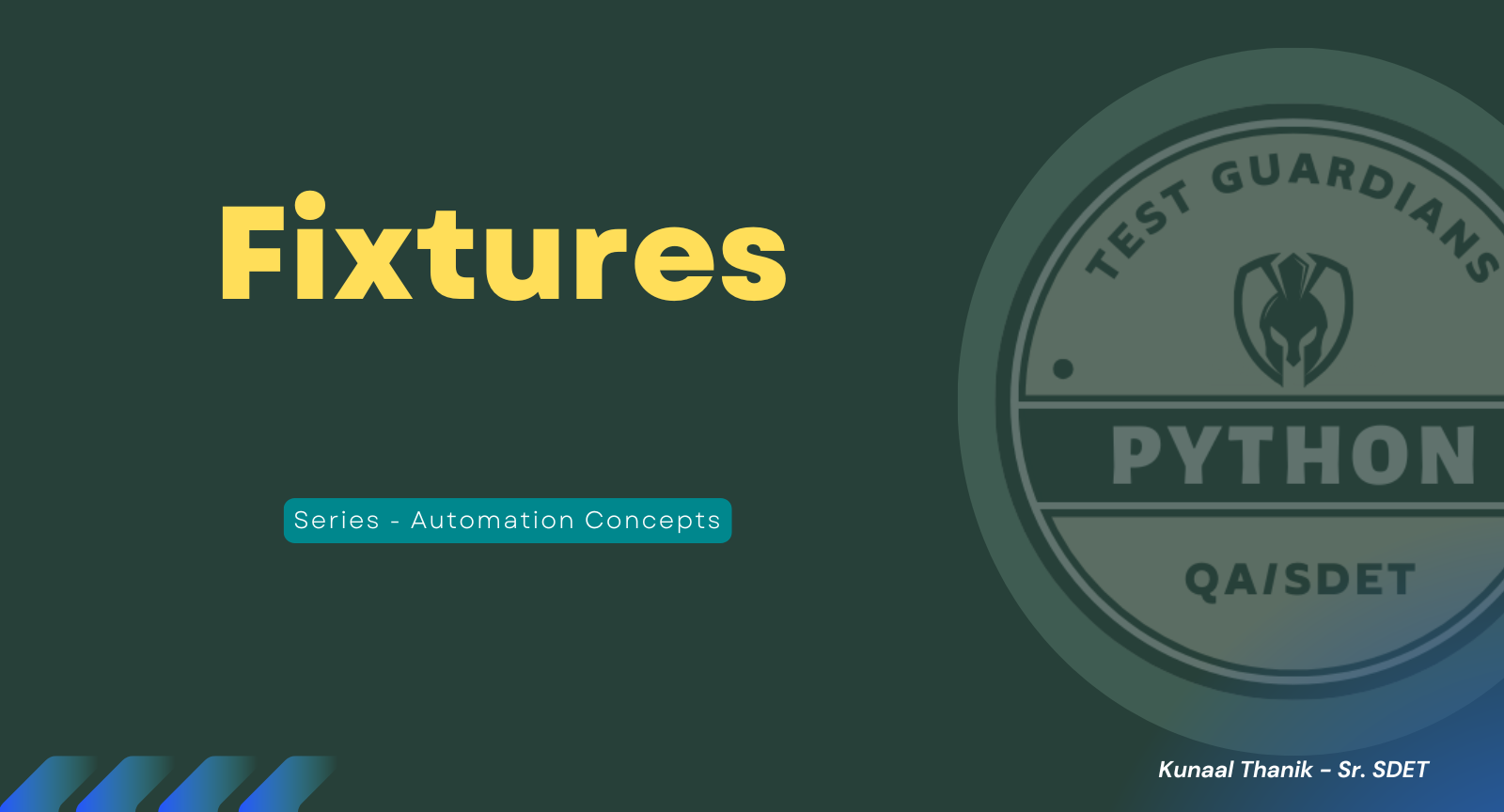Pytest Fixtures
 Kunaal Thanik
Kunaal Thanik
Fixtures:
A pytest fixture is a function in the pytest framework that provides a fixed baseline environment for tests. This environment can include setting up database connections, preparing test data, or even creating temporary directories. Fixtures allow you to define setup code that can be reused across multiple test functions, ensuring that each test is run in a consistent environment.
Why use fixtures?
Reusability: Fixtures promote code reusability by allowing you to write setup and teardown code once and use it across multiple tests.
Maintenance: Centralizing the setup code in fixtures makes it easier to maintain and update. If a change is needed, it can be done in one place rather than updating multiple test functions.
Readability: Tests become cleaner and more readable, as they focus on the actual test logic rather than the setup and teardown details.
Modularity: Fixtures can be composed together, making it easy to build complex setups by combining simpler fixtures.
Metaphor - Fixture as a Stage Crew:
Imagine a theater production. Before the actors can perform their scenes, the stage crew sets up the stage with the necessary props, lighting, and background. This setup ensures that each scene can be performed smoothly and consistently.
Similarly, pytest fixtures act like the stage crew for your tests. They set up the required environment (e.g., database connections, test data) so that your tests can run smoothly and consistently without worrying about the repetitive setup code.
Subscribe to my newsletter
Read articles from Kunaal Thanik directly inside your inbox. Subscribe to the newsletter, and don't miss out.
Written by
